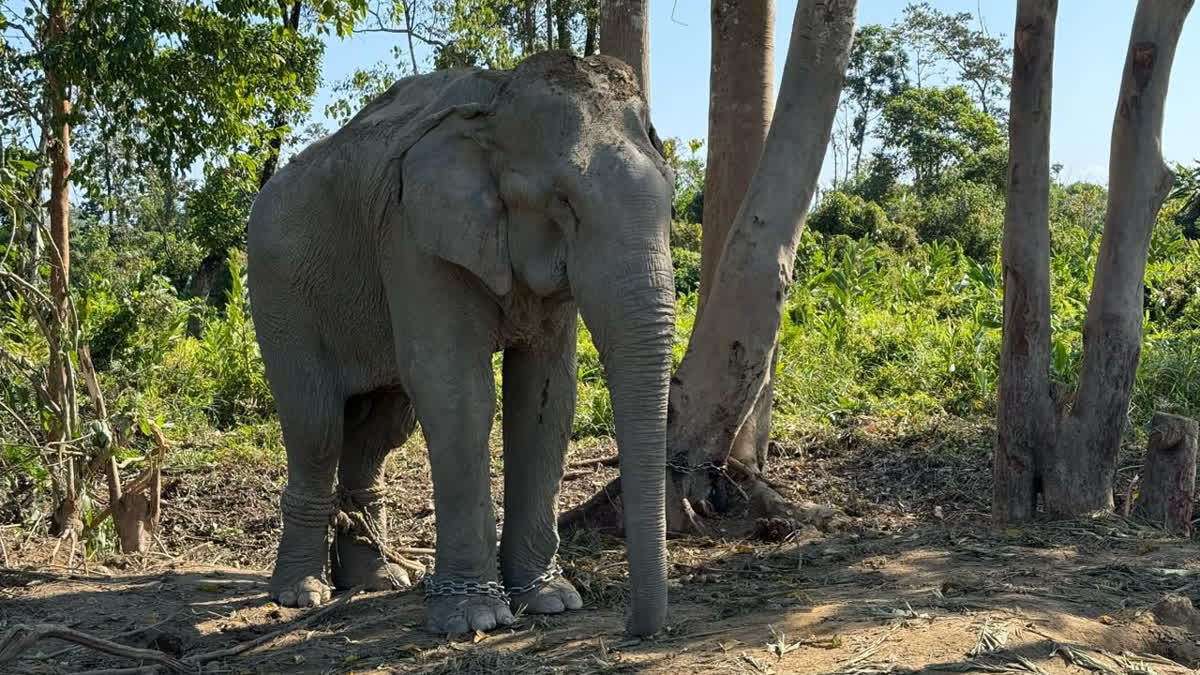Guwahati: As the social media went agog with videos of several animal ambulances passing through Assam, Gujarat-based animal rehabilitation Centre Vantara clarified that the Vantara is preparing to welcome 20 rescued elephants from Arunachal Pradesh.
Vantara, the animal conservation and rehabilitation centre established by Reliance Industries with Reliance Foundation said that the 20 elephants from Arunachal Pradesh include 10 males, 8 females, 1 sub-adult, and 1 calf, which were freed from the exploitative logging industry in the northeastern state.
Visuals of several animal ambulances with Gujarat registration numbers passing through different towns and districts of Assam went viral on social media for the last two days leading to speculation that elephants from Assam are being taken to Gujarat. The issue soon caught political attention in Assam with different political parties reacting to the incident.
Assam Chief Minister Himanta Biswa Sarma, who was abroad promoting a proposed business summit Advantage Assam 2.0, clarified on his X handle, "It is hereby clarified that no elephants have been transported from Assam in the recent past. Certain news items and social media posts published linking Assam to such activities are completely unwarranted and false."
"Vantara, a renowned rescue centre for captive elephants and other wild animals, founded by the visionary philanthropist Anant Ambani, is preparing to welcome 20 rescued elephants — 10 males, 8 females, 1 sub-adult, and 1 calf — freed from the exploitative logging industry in Arunachal Pradesh. This rescue operation carried out with the approval of the High Powered Committee constituted by the Tripura High Court and entrusted by the Supreme Court of India, has been conducted with the full consent of the current owners of the animals. The elephants will soon find their permanent home at Vantara, an environment that naturally mirrors their native habitat, where they will live chain-free and will never be forced into labour," said a statement issued by Vantara.
The statement said that in addition to providing lifelong care for the elephants, the project offers new livelihood opportunities for the owners, mahouts, and their families at Vantara. "The mahouts and others involved will undergo intensive training in humane and scientifically backed methods of elephant management, ensuring a future of compassionate care for the elephants and empowering their caregivers with the knowledge and skills to support this approach," it said.
Vantara made it clear that the organization has secured all required documentation under the Wildlife (Protection) Act, 1972, including obtaining a No Objection Certificate from the Gujarat Forest Department and a Transport Permit from the Arunachal Pradesh Forest Department. "The elephants will be transported in specially designed elephant ambulances, with the calf Maya travelling alongside her mother," it said adding that a dedicated team of over 200 experts, including elephant veterinarians, paravets, senior caretakers, and ambulance drivers from Vantara, will ensure the safe and compliant transportation of the animals, adhering to strict transportation guidelines and animal welfare standards.
Referring to a research paper published in 2020 in Gajah, the biannual journal of the IUCN/SSC Asian Elephant Specialist Group, VAntara authorities said that a significant number of privately owned elephants are bred in captivity in Arunachal Pradesh. These elephants are often managed near forested areas, where captive cow elephants come into contact with wild bulls. However, private ownership of elephants is declining, as the demand for their use in forestry operations has diminished following the logging ban.
Mr Tabang Jamoh, Divisional Forest Officer, Namsai (Arunachal Pradesh), confirmed, "With an active breeding population of approximately 200 captive elephants in Arunachal Pradesh, DNA profiling is being conducted to closely monitor their health and welfare. The transfer of 20 elephants to the Radhe Krishna Temple Elephant Welfare Trust at Vantara, as directed by the Supreme Court-appointed committee, ensures a brighter future for these animals. This initiative enhances animal welfare while providing local communities with alternative livelihoods, striking a balance between conservation, community well-being, and forest protection."



